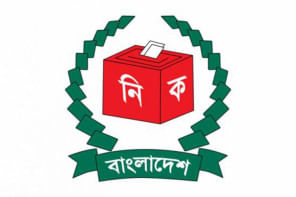Bangladesh signs Marrakesh Treaty: The end of ‘book famine’?

September 26, 2022 marks a historic day for Bangladesh, especially for the people who have any form of visual or print disability. On this day, Ambassador Mustafizur Rahman, permanent representative of Bangladesh to the United Nations in Geneva, submitted Bangladesh's instruments of ratification of the Marrakesh Treaty to World Intellectual Property Organization (WIPO) Director-General Daren Tang. This news brought joy among the visually-impaired people and those working with them. However, not surprisingly, this historic event failed to draw the attention of mainstream media, except for a few newspapers giving negligible coverage.
Now, the questions arise: what is the Marrakesh Treaty? Who would benefit from Bangladesh ratifying it? What are the next steps for its implementation at the national level?
The WIPO-administered Marrakesh Treaty, adopted on June 27, 2013 and entered into force on September 30, 2016, makes the production and international transfer of specially-adapted books for people with blindness or visual impairments easier by establishing a set of limitations and exceptions to traditional copyright laws. The agreement was signed under the auspices of the WIPO for use by its member states. The full name of the agreement is Marrakesh Treaty to Facilitate Access to Published Works for Persons Who Are Blind, Visually Impaired, or Otherwise Print-Disabled. It has a clear humanitarian and social development dimension, and its main goal is to create a set of mandatory limitations and exceptions for the benefit of the blind, visually impaired and otherwise print-disabled (VIPs).

Intellectual property (IP) or copyright is a legal right existing in many countries, which gives the original creator of an intellectual work the sole and exclusive right to decide whether a party other than the creator can use that work, or under what conditions. These can be books, literature, stories, rhymes, paintings, photographs, publications, videos, movies, documentaries, etc. IP is legally protected through patents, copyright and trademarks, which enable people to earn recognition or financial benefits from what they invent or create. By striking the right balance between the interests of innovators and the wider public interest, the IP system aims to foster an environment in which creativity and innovation can flourish.
The Marrakesh Treaty requires its contracting member nations to create limitations and exceptions to their respective copyright laws to make it easier for people with disabilities to access printed works in accessible formats such as braille and digital audio files. It also establishes rules for cross-border exchange of such accessible format copies.
Millions of books or magazines are published worldwide every year. Some of them might be textbooks, some might be about literature. Almost all such publications are protected by copyright – even world-famous newspapers like The New York Times or The Guardian. These publications cannot be photocopied or scanned and sold by anyone. As written in every publication protected by copyright, it may not be translated, stored in electronic or any other form, without the written permission of the author or publisher. These acts are punishable offences in many countries, including Bangladesh under the Copyright Act, 2000. Violation of this law can result in a fine of Tk 2 lakh and imprisonment for four years.

The Marrakesh Treaty was negotiated against the backdrop of a worldwide paucity of printed works and cultural materials in accessible formats – often referred to as a "book famine." This famine is alarming in its scope and impact. Many of the estimated 300 million print-disabled individuals around the world, especially those living in developing countries, lack adequate access to printed materials in accessible formats even though the technology to create such work has long existed and continues to evolve rapidly. Unable to read newspapers, enjoy books, or research on the Internet, these individuals cannot participate meaningfully in society. The result is a violation of numerous internationally recognised human rights, including, most notably, the rights protected by the United Nations Convention on the Rights of Persons with Disabilities (CRPD).
According to the latest National Blindness Survey (2020), an estimated 1.43 million people are living with mild to severe visual impairment in Bangladesh, and 19 in every 100 adults aged 30 years or older suffers from any degree of visual impairment. The ratification of the Marrakesh Treaty by Bangladesh means visually impaired people in the country can now read books and literature written by renowned national and international writers, unlike before. Those books can now be converted to the braille version and visually impaired people who are computer literate can read the publications using accessible software on the computer, tablets or mobile phones if they are converted to any electronic form. Audio books can be produced so that when they want, they can read and listen to the books themselves without depending on others. And, most importantly, this conversion or storage of books will no longer be against the country's copyright law. Although the Marrakesh Treaty provides for the creation of textual versions of the original publication, these created versions may not be used arbitrarily. These conversions will also be systematic, and they will be accessible only to visually impaired people.

The treaty will enter into force in Bangladesh on December 26, three months after the submission of the letter of ratification to the WIPO, as per the terms of the agreement.
It is time to demand that people with disabilities are taken seriously. As long as society believes that blind children cannot learn, providing accessible books remains an act of charity. As long as society believes that blind adults cannot work, nothing beyond kindness justifies the production of books in braille and other accessible formats. As long as society believes that blind seniors are doomed to live out their lives in institutions or in the care of their families, accessible books are nothing more than a palliative tool to ease their suffering. But blind children can learn, and blind adults can work, and blind seniors can continue to live full, active, productive lives. To do so, they must have the same opportunities as others, and that means they must have access to the written word – not just to a few of the books available to others, but full and equal access.
The accession to Marrakesh Treaty is a monumental step for Bangladesh towards full and equal opportunity, but it is only a step. Now we must work on its implementation. We must put our full and concerted effort into urging the government to implement the treaty, and to do so without delay. Visually impaired children and adults in the country have waited long enough. The immediate step now should be amending and revising the Copyright Act. Producing more accessible books is another important step for Bangladesh in ending the "book famine."
Ayon Debnath is a development practitioner currently working with Royal Commonwealth Society for the Blind (Sightsavers), a UK-based international development organisation.

 For all latest news, follow The Daily Star's Google News channel.
For all latest news, follow The Daily Star's Google News channel. 




Comments